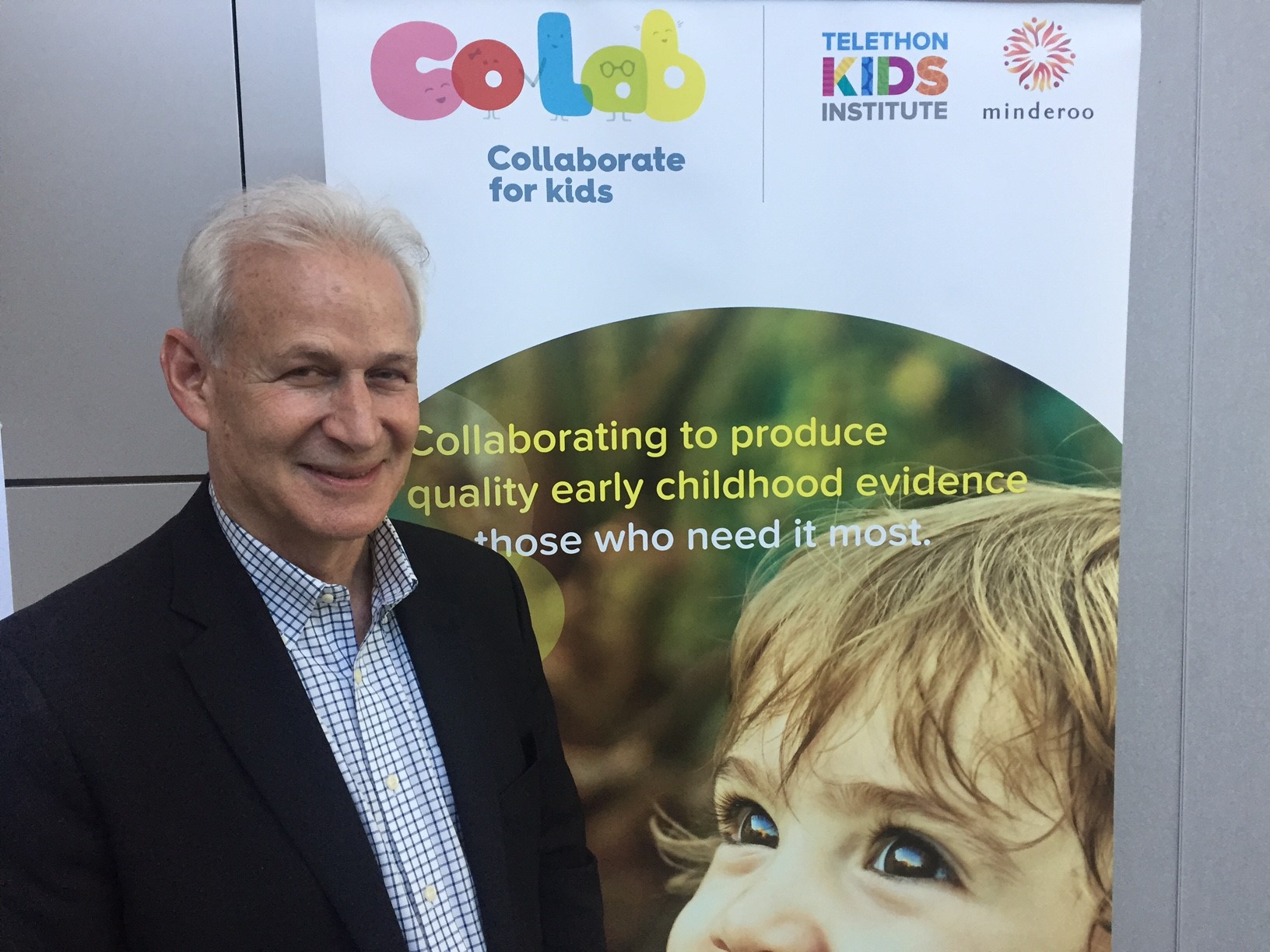Search

News & Events
First words: identifying risks to language developmentDaniel Christensen, The Kids Research Institute Australia Life Course Centre research fellow, explained there was rapid change in a child’s brain in the first few years of life, making their home environment and relationship with carers incredibly important.

News & Events
Children’s voices must be heardAround seven per cent of children and young people live in poverty, and one third are developmentally vulnerable when they start full-time school.

News & Events
Life skills for every childColab’s new Bright Tomorrows parent app is helping families across Australia give their young children the best developmental start in life.

News & Events
WA, Queensland leading nation’s improvements in early childhood outcomesWestern Australia and Queensland are leading the nation when it comes to ensuring children have a good start at school, according to a study by researchers at The Kids Research Institute Australia.

News & Events
Kids who attend playgroup do better at schoolNew research by The Kids Research Institute Australia has found children who attend playgroups achieve better early primary school outcomes.

News & Events
International expert to bring together WA leaders to improve outcomes for kidsDr Jack Shonkoff, from Harvard University is visiting Perth this week as a guest of CoLab, Goodstart Early Learning and Child Australia.

News & Events
Australian researchers join international project to curb unhealthy lifetime trajectoriesAustralian researchers join global effort to better understand how events during pregnancy and childhood influence the development of disease later in life.

News & Events
Data reveals important clues about child abuse and neglectResearchers working on the Developmental Pathways Project are determined to find out what makes families vulnerable to child abuse and neglect.
Research
Herpes simplex virus in infancy: Evaluation of national surveillance case captureAs herpes simplex virus in infancy is not a mandatory notifiable condition in Australia, completeness of ascertainment by the Australian Paediatric Surveillance Unit (APSU) has been difficult to evaluate to date. We evaluated case capture in Queensland and Western Australia using statewide laboratory and clinical data and complementary surveillance data collected via the APSU.
Research
Respiratory Viral Testing Rate Patterns in Young Children Attending Tertiary Care Across Western Australia: A Population-Based Birth Cohort StudyBelaynew Christopher Peter Hannah Minda Huong Taye Blyth Richmond Moore Sarna Le MD, MPH, PhD MBBS (Hons) DCH FRACP FRCPA PhD MBBS MRCP(UK) FRACP OAM
